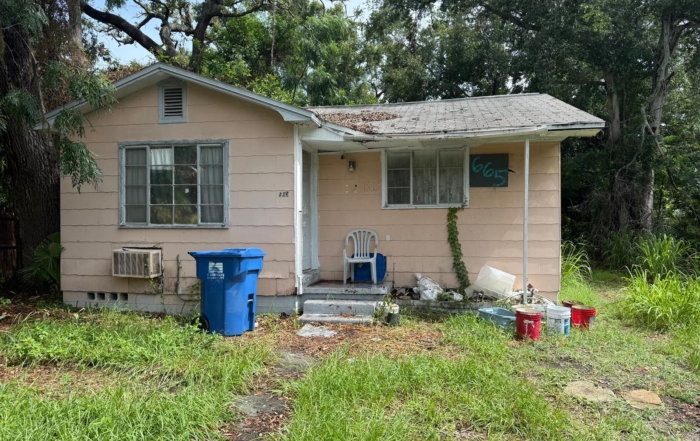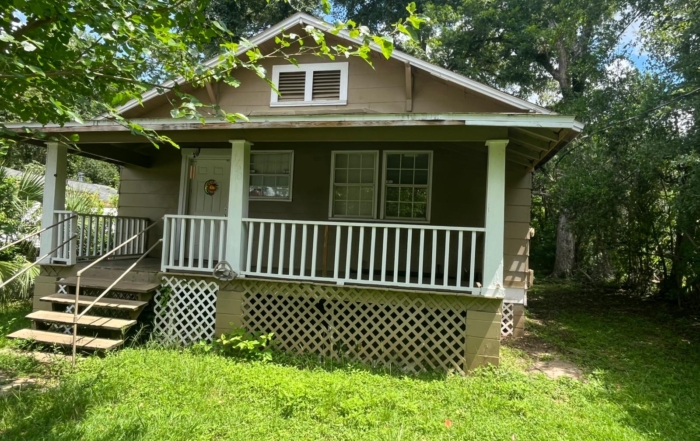
Bonus Depreciation or Long-Term Depreciation: Which Is Best for Real Estate Investors?
So you’ve jumped into the wild world of real estate investing, and suddenly people are talking about tax strategies like “bonus depreciation” and “long-term depreciation.” They sound like spells from a wizard school, but they’re actually ways to save on taxes. Today, we’re here to help you understand which one is right for you—no magic wand required.
What’s the Deal with Bonus Depreciation?
Imagine you just bought a house, and the government is offering you a massive tax deduction on the stuff that wears out quickly (like appliances and carpet). Instead of spreading out the tax savings over many years, bonus depreciation lets you take a huge bite of that deduction right away—like eating most of a pizza in one go. Yum!
Here’s why bonus depreciation is cool:
-
Quick Cash Boost: By deducting a huge chunk right away, you keep more cash in your pocket from the start. This is perfect if you’re hoping to use that money to buy another property, pay down a loan, or just enjoy a fatter wallet.
-
Perfect for Big Earners: If you’re making a lot of money already, bonus depreciation helps you dodge a good chunk of taxes upfront. It’s like getting a tax discount right when you need it most.
-
Faster Returns: Early tax savings means more cash for things like renovations, new properties, or other investments. You’re building your empire faster with the money Uncle Sam lets you keep.
An Example of Bonus Depreciation: Let’s say you buy a rental property for $500,000. The IRS lets you deduct part of the building’s value. Normally, you’d take little deductions over 27.5 years. With bonus depreciation, you might get to take a massive deduction upfront, maybe $200,000 in the first year! This could save you tens of thousands in taxes, giving you cash right now.
What About Long-Term Depreciation?
If bonus depreciation is like eating most of your pizza upfront, long-term depreciation is more like savoring one slice at a time. You take smaller bites, but you get to enjoy it for longer. With long-term depreciation (or straight-line depreciation), you spread out the deduction over 27.5 years for residential properties, taking a smaller deduction each year.
Why some people prefer long-term depreciation:
-
Consistent Tax Breaks: Long-term depreciation gives you a steady tax deduction each year. It’s great if you like a reliable little tax break every year, rather than a huge one at the start.
-
Lower Tax Hit When Selling: If you ever sell the property, you might have to pay back some of that depreciation in taxes. With long-term depreciation, this “recapture tax” can be a lot smaller since you took smaller deductions over time.
-
Perfect for Slow and Steady Wins: If you’re in it for the long haul and like predictable deductions, long-term depreciation is your friend.
An Example of Long-Term Depreciation: Using the same $500,000 property, you’d spread out your deductions over 27.5 years, taking about $14,545 each year. It’s not a huge chunk, but it’s consistent and lets you enjoy steady tax breaks over time.
So, Which One Should You Pick?
It depends on your goals and how fast you want to grow:
-
High Earners or Fast Trackers: If you’re making good money and want to expand quickly, bonus depreciation is like turbocharging your tax savings. It’s ideal if you want big savings now and are okay with potentially fewer deductions in future years.
-
Long-Term Holders: If you plan to hold onto properties for a while, long-term depreciation might be your best bet. You get predictable, steady tax savings each year without a big tax hit when you sell.
-
Casual Investors: If you’re just dipping your toes in the market, you might not need a massive upfront deduction. Long-term depreciation gives you small, consistent breaks without complicating things too much.
How Trump’s New Policies Could Change Things
With Trump elected, things could get even more interesting. During his campaign, he talked about bringing back 100% bonus depreciation for real estate investors. That means you could potentially take a full deduction on certain property costs in the first year. For growth-minded investors, this could be a huge win, making it even easier to expand your real estate portfolio.
But hold up! This policy might favor big, upfront deductions, which doesn’t help as much if you prefer long-term, steady tax savings. So, stay informed, and check in with a tax pro to make sure you’re ready to take advantage of any changes that come your way.
Final Thoughts: The Choice Comes Down to Your Goals
Both bonus depreciation and long-term depreciation are handy tools for real estate investors. The right choice depends on whether you want a big tax boost now (bonus depreciation) or steady savings over the years (long-term depreciation). Here’s a quick recap:
- Bonus Depreciation: Big upfront deduction, ideal for high earners or those looking to reinvest quickly.
- Long-Term Depreciation: Steady deductions over time, great for those holding properties long-term.
Don’t Forget the Experts!
If you’re just starting out or unsure which option is best, a tax advisor can guide you based on your unique situation. And as policies change, especially with Trump back in the picture, keeping up-to-date will help you get the best tax savings on your properties.
Keep it consistent, stay patient, stay true—if I did it, so can you!
Ready to learn? Let me guide you at propertyprofitacademy.com
– Jorge Vazquez, CEO of Graystone Investment Group & its subsidiary companies and Coach at Property Profit Academy
OUR BEST ARTICLES
For Sale: 665 36th Ave S, Saint Petersburg, FL 33705
Jorge Vazquez2025-07-03T18:05:29+00:00July 3rd, 2025|Comments Off on For Sale: 665 36th Ave S, Saint Petersburg, FL 33705
Property Details: • Address: 665 36th Ave S, Saint [...]
The Power of Home Equity: Utilizing Your Property’s Value
allanmcnabb2025-07-01T20:40:35+00:00July 1st, 2025|Comments Off on The Power of Home Equity: Utilizing Your Property’s Value
Your home is more than just a place to live; it’s one of the most significant financial [...]
Graystone Real Estate Expands into South Florida via Miami MLS
Jorge Vazquez2025-07-01T00:47:05+00:00July 1st, 2025|Comments Off on Graystone Real Estate Expands into South Florida via Miami MLS
Graystone Real Estate Expands into South Florida via Miami MLS FOR IMMEDIATE RELEASE June 30, 2025 TAMPA, FL — [...]
For Sale: 1046 Dover St, Tallahassee, FL 32304
Jorge Vazquez2025-06-30T18:14:58+00:00June 30th, 2025|Comments Off on For Sale: 1046 Dover St, Tallahassee, FL 32304
Property Details: • Address: 1046 Dover St, Tallahassee, FL [...]
Protected: Here’s How to Get Assignment Fees Financed (Even When Lenders Push Back)
Jorge Vazquez2025-07-01T20:45:37+00:00June 30th, 2025|Comments Off on Protected: Here’s How to Get Assignment Fees Financed (Even When Lenders Push Back)
This content is password protected. To view it please enter your password below: Password:
Florida’s Not Crashing—It’s Resetting: Why This Market Is Still a Goldmine for Smart Investors
Jorge Vazquez2025-06-28T22:52:38+00:00June 28th, 2025|Comments Off on Florida’s Not Crashing—It’s Resetting: Why This Market Is Still a Goldmine for Smart Investors
The so-called "decline" in Florida’s housing market is nothing like 2008. Back then, we were dealing [...]
Ready to take your real estate investing knowledge to the next level? Join our Property Profit Academy today! https://www.propertyprofitacademy.com

Meet our Team of Experts!
Meet Cody Bergstrom, Your Expert in Finding Deals
My team and I have over 20 years of experience in real estate. We have strong relationships with wholesalers, probate lawyers, sellers, and others in Florida. I aim to align your investments with your vision and deliver exceptional results. Contact Vanessa to schedule a meeting: https://graystoneig.com/cody

Meet Lisa Kaye Price, the LendingGig Top MLO
Lisa-Kaye Price – Real Estate Lending Specialist
With 20 years in real estate, Lisa-Kaye is dedicated to helping clients achieve their investment goals through strategic financing. She and her team focus on securing the best financing solutions to maximize leverage – a unique advantage of real estate investing.
Offering various options, including conventional loans, asset-backed and private money solutions, and programs for foreign nationals, Lisa’s expertise ensures clients get the support they need, whether buying new properties or refinancing.
Schedule a meeting with Lisa: https://graystoneig.com/lisa-kaye-price
Meet Marylyn Patankar, Your Property Manager Partner
Hello, I’m Marylyn Patankar, the Field Manager and New Client Ambassador at Graystone Property Management. I educate investors about our perks, onboard new landlord investors, and manage on-site operations. Schedule a meeting with me here: https://graystoneig.com/marylyn








